To meet the exploding need for food during the pandemic, the Food Bank opened 20 Pop-up pantries across San Francisco and Marin, each serving roughly ten times more people each week than our regular pantries. In the south-east corner of San Francisco, the Bayview Opera House was one of the first Pop-ups we opened after shelter in place went into effect.
Set up in the parking lot between the Opera House and Joseph Lee Recreation Center, the pantry is staffed by volunteers outfitted with masks and gloves always maintaining a safe distance. They say there are many “this is why we are out here” moments – whether it’s participants’ relief that they’ll be able to put food on the table for the week or folks new to the Food Bank who are surprised to open their bag and find that about 70% of what the volunteers bagged for them is fresh produce.
Finding A Way During the Shutdown
The Bayview Opera House is now serving more than 1,000 households every Monday. The line often stretches down Newcomb Ave, around on 3rd Street, and back up the hill on Oakdale, but it moves quickly – social distancing can be deceiving.
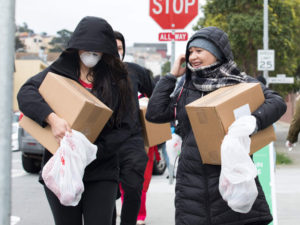
Once at the front of the line, participants are greeted by a friendly volunteer with a clipboard who asks them how many people are in their household, before they are handed a bag of groceries.
For Maria, who lost her job in the crisis as a childcare worker, standing in line is worth it, “I know there are a lot of families who are thinking: rent or food?” She has been trying to figure out what to cut from her budget so she can support her family as the shelter in place continues. “This really helps because I have two teenagers at home who eat a lot. Before I was spending $150 per week for just one meal a day. Now, they are eating three meals.”
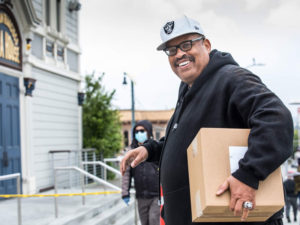
James, a tour bus driver, said: “I came to work, and it was just shut down.” Without the tours he has had trouble making money, “my savings are gone so the Food Bank helps.” He loves that he can still get a variety of proteins. “Last week I got eggs. I killed those eggs! Once, there was pork loin. I killed that too!”
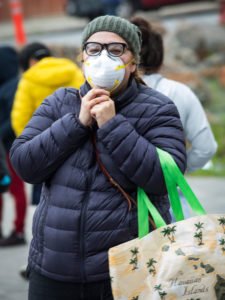
For Jasmine’s family, the pop-up pantry is a lifeline. Jasmine lost her hotel job and lives with her mom, who has a health condition that makes her vulnerable to COVID-19, and with her brother, whose hours were cut as his airline job. “Honestly, I don’t even know how we are getting by. By the grace of God, we are living day by day,” she said. “It’s a little stressful figuring out the craziness of how you are going to pay rent and buy food.” But the pop-up pantry helps, “because two out of three of us are not working, it helps
us save money and not waste the last of our savings.”
The Pop-ups are a welcome sight, with passing cars often giving us a friendly honk. The Food Bank and our volunteers make sure the community knows we’re here for them in this crisis, and we are all in this together.



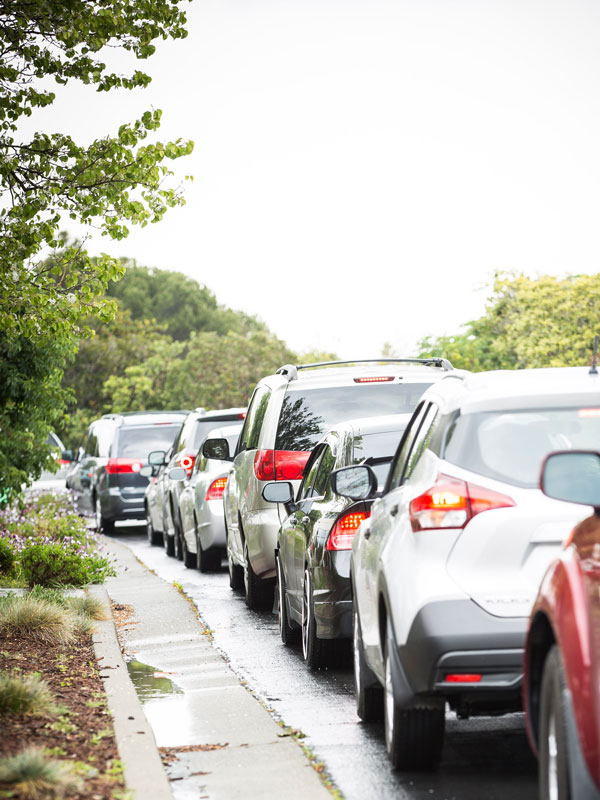
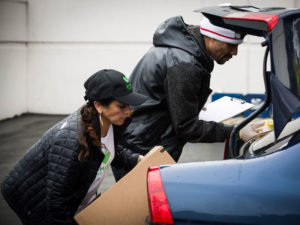
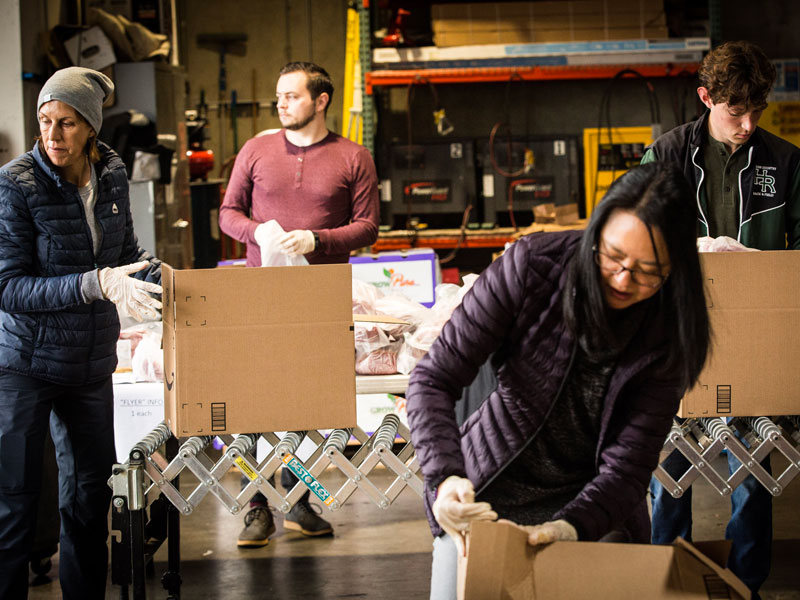
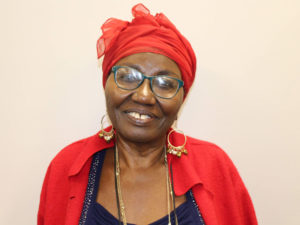 “It has helped me a lot – you wouldn’t believe it!”
“It has helped me a lot – you wouldn’t believe it!”
Share